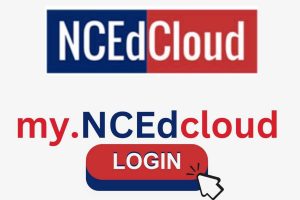Content Attributes
Education systems are constantly transforming to equip students with new skills and developing them to succeed and contribute to their economies. Equity has a substantial effect on the prosperity and growth of local and national economies. Equity in education is not a new concept, but today, more educational institutes realize its significance.
It is a process of modifying procedures and policies and bringing out different strategies to ensure that every pupil receives the resources and support they need. All students of the same level do not necessarily have the same intelligence and skills; thus, a single strategy may not work for all. Catering to students’ needs as per their requirements is equity in education.
Equality and equity both promote fairness. Many people confuse equity with equality, thinking that they are the same concept. Irrespective of people’s needs, treating them all in the same ways and providing the same opportunities is equality. On the other hand, equity achieves fairness through treating people differently as per their needs.
Equity in education is essential to have an inclusive environment, and it helps each student feel recognized. Many educators understand that equity is critical, but they cannot decide how to achieve it. Below we are giving some strategies which will help in enhancing equity in education:
Modify Educational System’s Design
The structure of an education system has a substantial impact on equity. It either promotes it or discourages educational practices that favor dealing with students as per their needs. Therefore, educational institutes must hire staff competent enough to manage students’ multiple intelligences. Hiring qualified professionals who are well-versed in their subject and can develop a connection with students is necessary.
The system should allow students with varying learning difficulties to take more time and facilitate them with additional resources. In today’s era, there are many professionals out there who can identify students’ varying needs. They possess the essential skills vital for understanding students’ problems and devising strategies to tackle them. People who have earned accredited masters in social work programs can understand students’ needs better and help educators cater to students according to their requirements.
Promote Multidisciplinary Curriculum
Education systems have evolved over the years and educators today use different teaching techniques and methods. A multidisciplinary curriculum caters to various disciplines and equips students with diverse skills through a single subject. Undeniably, not every student can master each subject area or field. Thus, incorporating a multidisciplinary curriculum can help students identify which fields they’re good at and which ones require more effort.
For instance, at a primary level, some students enjoy learning and exploring various cultures and might not have good number-crunching skills. On the other hand, some may possess excellent mathematical skills and would steer clear of theoretical subjects. Designing a multidisciplinary curriculum that includes various topics allows educators to identify and groom students’ unique skills and capabilities.
Provide Educational Institutes Required Resources
Educational institutes may need some additional resources to cultivate equity in education. Some students may require further help, therefore, hiring academic counselors can prove beneficial. Moreover, supplying them with supplementary learning material may also help them in improving their weak areas.
Often, students do not have the underlying fundamental concepts clear, and they find advanced theories confusing. Giving them access to reading material of foundation concepts can help them bring to the class’s required level. Ensuring that educational institutes do not face any shortage of resources will enhance equity in education.
Implement Culturally-Relevant Practices
Culturally relevant teaching is a strategy that recognizes the importance of giving students cultural references while teaching. Culturally appropriate systems help in establishing a strong connection between students and teachers belonging to different backgrounds.
Furthermore, it develops a sense of inclusion and students learn better when they feel respected and included. Culturally relevant teaching encourages including texts from various cultures and authors. It strengthens students’ sense of identity, promotes inclusivity, and fosters equity in classrooms.
Allow Educators to be Innovative with their Strategies
Several education systems are rigid about their teaching practices and instruct educators to adhere to them strictly. Educational institutes need to be flexible and allow educators to change their strategies as per students’ needs. Teachers may not achieve their objectives by applying the same technique to all students and may have to utilize innovative techniques.
Enabling teachers by providing them with the resources they need and giving them ownership of the classroom will help establish a more equitable atmosphere. The key is to hire competent educators who can easily understand the curriculum and are familiar with different pedagogies.
Conclusion
Creating a more equitable educational environment is about student empowerment where every child feels safe and included. Educators should understand that their pedagogic may not yield the same results for all students. Thus, they might have to use different approaches and alter their teaching methods. An education system that provides opportunities to all students and addresses their needs makes society more equitable.



